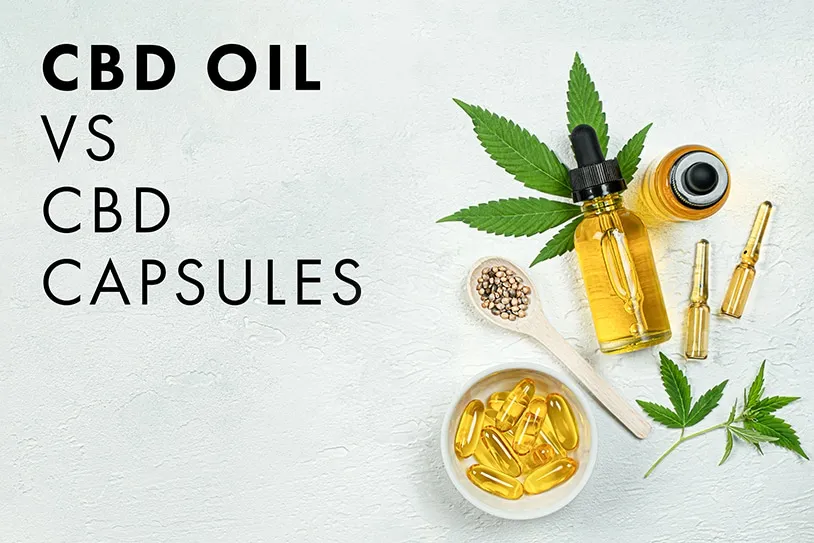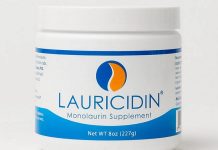The growing popularity of CBD has led to the availability of a wide range of CBD-related products in the market, including CBD oil and CBD capsules. Both products offer the potential health benefits of CBD, but they differ in terms of onset time, dosage control, and ease of use. Choosing between CBD oil and capsules can be a daunting task, especially for those new to CBD.
In this article, we will explore the similarities and differences between CBD oil and capsules and provide information to help you determine which product is best suited to your individual needs.
Explaining CBD Oil
CBD oil is a popular CBD-infused product that has gained widespread attention for its potential therapeutic benefits. It is made by extracting CBD from the hemp plant and mixing it with a carrier oil, such as coconut or hemp seed oil. CBD oil can be consumed sublingually, added to food and drinks, or applied topically, making it a versatile option for those seeking the potential health benefits of CBD.
Explaining CBD Capsule
CBD capsules are a convenient and discreet way to consume the product. They are made by encapsulating CBD oil or its isolates in a gelatin or vegetable-based shell. The capsules offer a consistent dose of the product and are easy to swallow, making them a popular option for those seeking the potential health benefits of CBD without the taste or odor of the oil.
Why Choose CBD Oil?
One of the main advantages of CBD oil is its fast onset time. When consumed sublingually, CBD oil enters the bloodstream quickly, providing fast-acting relief for those seeking immediate effects.
CBD oil also offers precise dosage control, allowing users to adjust their dosage as needed to achieve their desired effects. Additionally, CBD oil can be added to food and drinks or applied topically, providing versatility in how it can be consumed.
Another advantage of CBD oil is that it is available in a wide range of strengths and formulations, making it easy to find a product that fits your individual needs. Finally, CBD oil may offer more potential health benefits compared to other CBD products due to the entourage effect, where the combination of multiple cannabinoids and terpenes enhances the overall therapeutic effect.
Why Choose CBD Capsule?
CBD capsules offer several advantages over other CBD products. One of the main benefits is their convenience and ease of use.
CBD capsules can be consumed discreetly and are portable, making them a convenient option for on-the-go use. Moreover, CBD capsules offer consistent dosing, ensuring that users receive the same amount of CBD with each dose; this makes them an ideal option for those who are new to CBD or who prefer a set dosage.
CBD capsules also have a longer onset time than the oil, allowing for a slow release of the product over time. Lastly, the capsules offer an odorless and tasteless way to consume them, which may be beneficial for those who do not enjoy the taste or smell of CBD oil.
CBD Oil Vs CBD Capsule (Similarities and differences)
CBD Oil vs Capsules – both offer the potential health benefits of CBD, but, they also have various similarities and differences.
One of the main similarities between the two products is that they are both made from CBD extracted from the hemp plant. Another similarity is that both of them can be used to improve sleep hygiene and cognitive function.
The main difference between CBD oil and capsules is the onset time. CBD oil is absorbed into the bloodstream quickly when consumed sublingually, providing fast-acting relief. On the other hand, CBD capsules have a longer onset time as they must be digested before the CBD can be absorbed into the bloodstream.
Another key difference is dosage control; CBD oil offers precise dosage control, allowing users to adjust their dosage as needed. While, the capsules, on the other hand, offer consistent dosing, ensuring that users receive the same amount of product with each dose.
Pros & Cons of CBD Oil
CBD oil has several potential benefits, including the potential to alleviate pain and inflammation, reduce anxiety and depression, and promote better sleep. It can also be used topically to help treat skin conditions such as acne and eczema.
However, CBD oil can have potential side effects, including dry mouth, dizziness, and changes in appetite and mood. Additionally, CBD oil may interact with certain medications, so it’s important to consult with a healthcare professional before using it. Also, the taste of CBD oil can be an issue for some people, as it can be bitter and earthy.
Overall, CBD oil can be an effective option for those seeking its potential health benefits, but it’s important to consider the potential drawbacks as well.
Pros & Cons of CBD Capsule
CBD capsules offer several benefits, including consistent dosing and ease of use. They’re also a discreet way to consume CBD, making them ideal for those who prefer to keep their CBD use private.
However, the capsules may have a longer onset time than the oil, making them a good option for those seeking a slow release of CBD over a longer period of time, but, the capsules may be less versatile than CBD oil, as they can only be consumed orally.
The CBD capsules may take longer to absorb into the bloodstream, which could result in a delay in the desired effects.
Can I Take CBD Oil & CBD Capsules together?
Yes, it is generally safe to take CBD oil and CBD capsules together. In fact, some people may choose to do so in order to achieve a more well-rounded and comprehensive CBD experience.
However, it’s important to be mindful of the dosage of both products, as taking too much CBD can result in unwanted side effects such as dizziness or nausea.
It is also important to note that CBD can interact with certain medications, so it’s important to consult with a healthcare professional before combining CBD with any other medications. Overall, taking both of them together can be safe and effective when done responsibly.
Conclusion
Ultimately, the decision of whether to use CBD oil or CBD capsules will depend on personal preferences, lifestyle, and desired effects. Both products offer unique benefits and drawbacks, and it’s important to consider these factors when making a decision. However, experimenting with different products can help determine which option is best suited for each individual’s needs.








